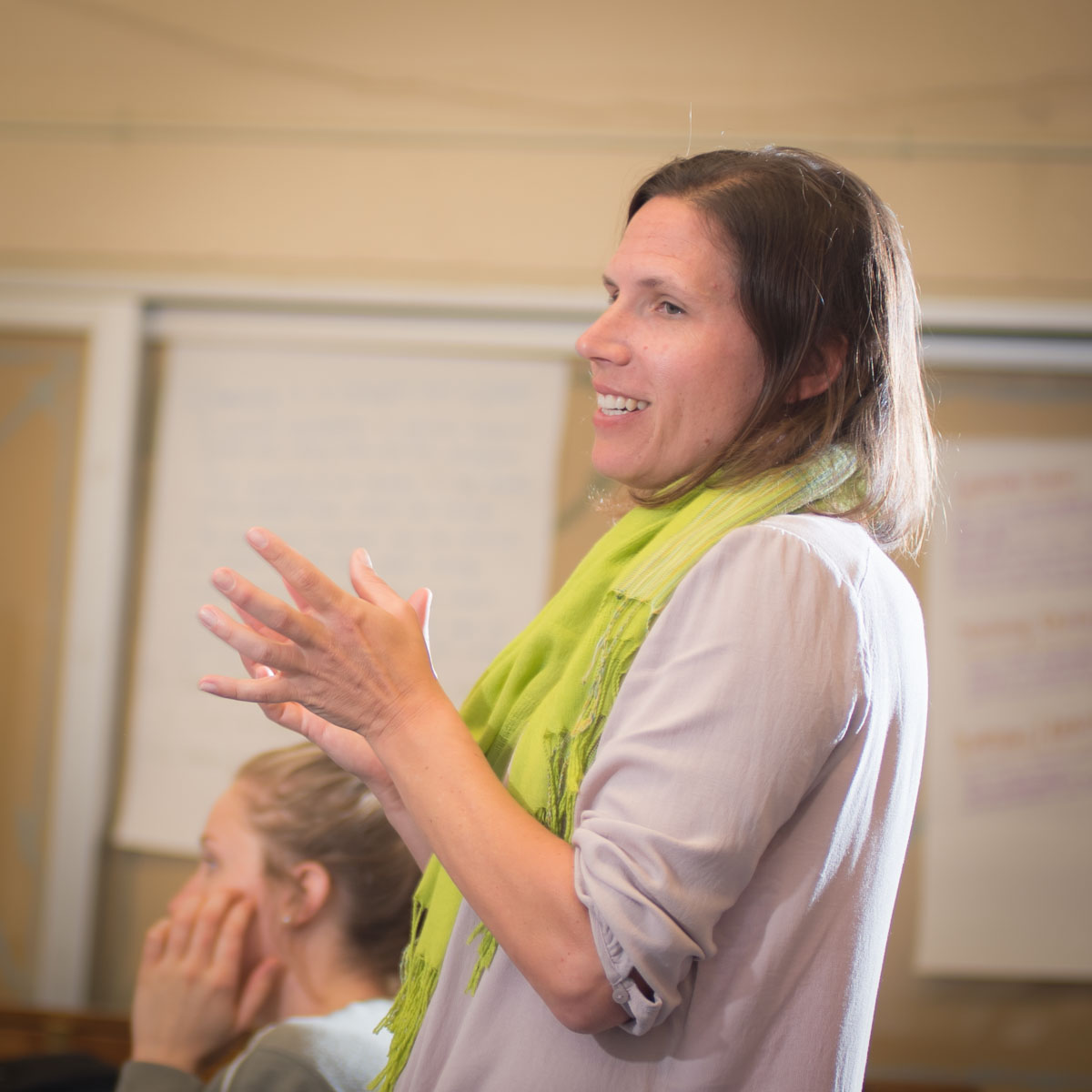College of Education Assistant Professor Part of Shift Toward Culturally Responsive Teaching
Vanessa Anthony-Stevens, an educational anthropologist in the University of Idaho’s College of Education, wants to see the way students are taught change. But she isn’t focused on buzzwords, trends or legislated standards. Her focus: Creating culturally responsive educational spaces that help students learn by respecting their backgrounds, and drawing upon those “funds of knowledge” to enrich new learning.
Working across cultures to improve education and equity is a lifelong passion for Anthony-Stevens, who has a master’s and doctorate in language, reading and culture from the University of Arizona.
“I grew up in the north side of Chicago and was always attending multiracial, multilingual environments,” she said. “I always, from a very young age, felt very disturbed by the silenced conversation around inequity.”
Making a Difference
In college, Anthony-Stevens felt disillusioned and didn’t want to get a degree to “join the system and become rich.” She studied education and sociology, becoming involved in tutoring and summer programs, all based on a strong belief that all people are intelligent and valuable.
She earned her bachelor’s in sociology in 1999 from Marquette University in Milwaukee, Wisconsin, which gave her the language to explain the social patterns she was seeing. But she knew the degree wasn’t enough.
“By the time I got done with college, I said, ‘I know I need to make an impact and I have something to say, but I need more skills,’” she said.
Anthony-Stevens joined AmeriCorps, where she worked in group homes in Jacksonville, Florida, and Baltimore, Maryland, as a residential counselor.
“I lived with teen youths who were trying to get on a college-bound track. The teachers were never thinking about who this child is outside of that math problem,” she said. “Why are we not thinking that? If we want Tyrone and Joseph to do well, we need to understand who Tyrone and Joseph are.”
The experience helped Anthony-Stevens learn to be an advocate for the educational process from the outside. She met her husband, Philip Stevens, through AmeriCorps, and then the couple joined the Peace Corps and moved to Paraguay. There, Anthony-Stevens first began thinking about a culturally responsive curriculum which views learning outside of the classroom to be just as important as learning inside of the classroom (a practice far too uncommon in traditional models of teacher practice).
“We lived in the community, but none of the school teachers did,” she said. “There was a joke about who can get out of the school faster — the teachers or the students.”
New Opportunities
After returning to the U.S., Anthony-Stevens moved with her husband, a member of the San Carlos Apache tribe, to his home reservation in Arizona. She began teaching, working on a master’s, then doctorate, and became involved with a charter school in Tucson dedicated to culturally responsive education.

Anthony-Stevens also led a grant project for the University of Arizona called Project SEED (Scholarships for Education and Economic Development), which worked to strengthen Mexican Indigenous elementary school education for teachers and teacher-coaches. The grant gave Anthony-Stevens the support and environment to explore culturally responsive education and how to implement it with stakeholders working in contexts of intercultural/bilingual education.
When the Project SEED grant funding ended, Anthony-Stevens began looking for a full-time academic position in her field. That’s when she found the job in UI’s College of Education.
“This job posting talked specifically about wanting someone to bring social and cultural stories to the College of Education. Knowledge of Indigenous communities was a preferred qualification,” she said. The college was looking for someone to come build relationships with the local tribes, including the Nez Perce based in Lapwai.
It’s a job that speaks to the heart of Anthony-Stevens’ passions.
“I tell my students all the time, ‘This is important work, and I take this work very seriously.’ If we believe that we should have an equitable education system in this country, we are utterly failing right now. Our failure to understand that becomes an intentional perpetuation of failure. We need to take a better look at what’s going on,” she said.
“My work with teachers is around looking at the parts of schooling — the social, cultural, spatial, economic aspects of schooling. If we don’t like the outcomes, then we need to do something to look at how our daily interactions are shaping outcomes.”
Anthony-Stevens tries to help her students at UI understand that all classrooms are culturally responsive: But most are responsive to upper- middle-class white kids, which perpetuates a historic power imbalance.
“If I’m only including one sector of society, I’m excluding other sectors,” she said.
Culturally responsive teaching isn’t about raising one culture above another, but recognizing that all students come to school with a backdrop of their heritage, which is worthy of being honored and respected.
That’s why schools in a minority-majority district like Lapwai focus on bringing the Native American culture into the classroom.
“What the Lapwai schools are saying is, ‘We’re important as well. We need to have our values present in our schools, knowing that the dominant (white) presence is already there,” she said.
Anthony-Stevens hopes exposure to non-white cultural experiences will help her students become better teachers.
“Part of being prepared to be a teacher is having exposure and experience in a variety of settings,” Anthony-Stevens said. “Students need to spend time with people who are English language-learners. They need to be in environments where resources are not evenly distributed. My dream is that those experiences will become normal.”
Article by Savannah Tranchell, University Communications and Marketing.







